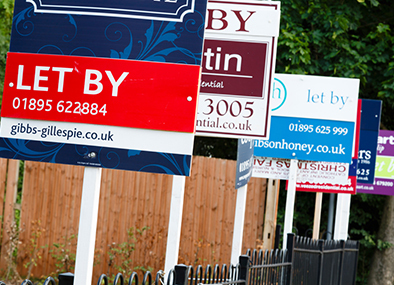You are viewing 1 of your 1 free articles
 Joanne Roney OBE
Joanne Roney OBECouncils can step in to improve PRS housing standards
The growth of the private rented sector means councils need to do more to stamp out rogue landlords, says Joanne Roney
In Manchester, in common with most other UK cities, the private rented sector is the fastest growing housing sector and is playing a key role in our continuing growth, helping to fulfil demand for high-quality homes in and around a vibrant city and attracting and retaining people in our growing economy as our population continues to grow.
In the city, four out of every five homes currently under construction is destined for the private rented sector, managed through commercially minded and professional landlords, and at a range of rents from market entry to high end.
However, some private rented properties remain a real mixed bag where regulation is challenging and we are often behind the curve in keeping up with conditions, especially where the ’criminal’ landlords are operating and treating enforcement as an overhead cost. It is important for us all that our residents can expect proper accommodation with landlords who respect and care about their tenants and where safety standards are in place.
For us, this requires a focused approach to tackling known rogue landlords to improve housing standards. We have very recently been successful in a bid for £280,000 from the Department for Communities and Local Government’s (DCLG) Controlling Migration Fund, which will be used to target unscrupulous landlords that can take advantage of immigrants or people who have no status to remain in the UK.
This project follows a pilot project last year, which also successfully bid for DCLG funding, focused on sub-standard accommodation above shops as a key area of problem housing, largely in areas of deprivation.
Through this programme, it became clear that rogue landlord activity, together with information from officers working directly in the neighbourhoods, has the potential to uncover migrant issues.
Immigrants can be vulnerable to unscrupulous landlords where housing conditions are poor and often exacerbated by subletting. This also means that immigrants can find it harder to integrate fully into Manchester life and contribute to the city’s economy.
“Immigrants can be vulnerable to unscrupulous landlords where housing conditions are poor and often exacerbated by subletting.”
Using the funding, we will be able to recruit three dedicated officers to help tackle these rogue private landlords in areas where we have concerns about their practices and where communities are negatively impacted. These officers will be in place by the end of the year.
Separately, we are also implementing our next phases of selective licensing following the launch of the initial designations in December last year.
Our licensing designations are targeted programmes based on a strong evidential case that require landlords or management agents to license their properties if they rent a home in the specific area, and is designed to help improve housing conditions and management standards in areas where there are a lot of private landlords.
We have clear and measurable objectives for each of the areas, something lacking in earlier attempts at landlord licensing. We have also made innovative use of Land Registry data, coupled with our local authority data, to identify landlords directly so that our licensing designations can be targeted directly at landlords rather than waiting for them to come forward for a licence.
In October, Manchester’s second designation area will be announced. The scheme will target poor housing and management standards in the Moss Side and Rusholme wards to the south of the city, where it will be mandatory for a private sector landlord to apply for a licence if they rent a property in the licensable area.
Part of the licence condition is that landlords need to provide an up-to-date gas safety certificate, keep electrical appliances they have supplied in safe condition, ensure working smoke alarms, supply tenants with a written statement of terms and demand a reference for respective tenants – among other specific conditions that can be attached to improve specific issues.
“Everyone should have the right to a safe, well-managed home.”
The first designation of 360 private sector properties in the Crumpsall ward to the north of the city has resulted in 292 licensing applications (44 were un-licensable) with investigations ongoing to ensure landlords apply for applications for the remaining homes or stop renting them out.
One interesting observation emerging from this first designation is that around 30% of the gas certificates submitted as part of the application were issued within days of the application date. That is probably 100 tenants who can now sleep that bit safer than they could before designation.
It is my view that everyone should have the right to a safe, well-managed home and we intend through our targeted approach to help maintain a private rented sector that Manchester people can trust, and find a home to be proud of. Our message to our bad landlords is: clear off, we don’t want you in our city.
Joanne Roney, chief executive, Manchester City Council










